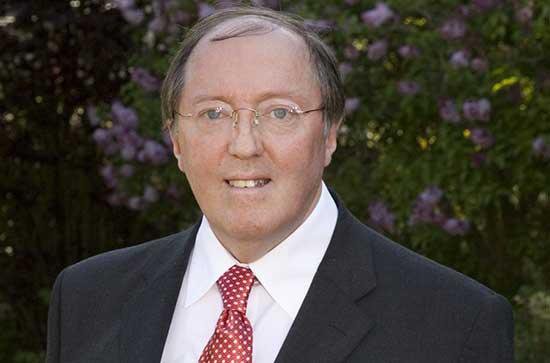
We’re at the tipping point, action is needed now to avoid catastrophic climate change, says Irish expert
THE planet on the brink of irreversible global warming.
A climate update from the World Meteorological Organisation earlier this month said the likelihood of crossing a key global warming threshold has risen significantly.
Researchers said that there’s now around a 50/50 chance that the world will warm by more than 1.5°C over the next five years.
Previous reports had forecast just a ten per cent chance of exceeding the warming threshold between 2017 and 2021.
Today in The Irish Sun on Sunday, John Sweeney, Emeritus Prof of Geography at Maynooth University, says we’re running out of time to solve the problem.
IN its latest annual climate update, the World Meteorological Organisation project there’s only a 50-50 chance of global temperature staying below the critical threshold of 1.5°C warming in the next five years.
READ MORE ON OPINION
This is a sobering change from seven years ago when the corresponding estimate of exceeding this critical threshold was close to ten per cent.
It is an indictment of the lack of progress the world has made in implementing the promises solemnly made at Paris by 197 countries.
And it opens up the probability that the tipping points identified by climate scientists will happen sooner than anticipated — with all of the ramifications that brings for countries, including Ireland.
Of course, one year of exceeding the 1.5°C warming threshold does not mean the efforts to contain climate change are lost.
Most read in The Irish Sun
We have been close to this threshold before. In 2020, the figure reached 1.2°C.
What will drive us over the threshold will probably be an El Nino event in the Pacific Ocean which, in some respects, is now overdue anyway.
But even if the over-shoot is temporary, the probability of staying above the threshold is unfortunately ever-increasing.
The likelihood is that we will be breaching the threshold consistently within 10-20 years.
It is true that major, and possibly irreversible, damage will occur at 1.5°C of warming.
Worryingly, some six per cent of insect species, eight per cent of plants and four per cent of animals would lose their habitable space.
But at 2°C, these stark figures can be multiplied by two or three times. For people, the stakes are also high.
KNOCK ON IMPACTS
Serious impacts on health, livelihoods, food production, water supply and human security are inevitable, some of which are already occurring.
An emerging risk is the risk of resource wars, especially over water, and the consequent displacement of people on an even larger scale than is now occurring across the European landmass, the Mediterranean and the English Channel.
These would, in the main, be people who have not caused the problem of climate change.
That responsibility falls on the shoulders of richer countries, like ourselves.
Regardless of the ethics and morality involved, from a stark economic perspective, the cost of failing to control our emissions will certainly be a multiple of the cost of acting now.
EXTREME EVENTS
As a mid-latitude country, Ireland will ultimately experience the global average temperature changes projected by climate scientists, such as my colleagues in Maynooth.
We will see our extreme temperature records challenged in the years to come.
But we will also see problems of extreme events, such as floods and droughts, and possibly storms, becoming much more frequent.
The loss of coastal land, infrastructural assets in our towns and cities, as well as the habitats and species we have thought of as part of our culture, will also take place.
So it behoves us to pull our weight properly as responsible members of the global community in complying with the promises we have made to reduce our emissions by 51 per cent within the next 91 months.
SHORT TIME SCALE
Yes, this is the short time scale we now face to deliver our own response. We can’t point the finger at bigger countries if we are not delivering on our own commitments.
Behind the scenes in Ireland, there is a political battle going on to determine which sector bears the brunt of future emission reductions.
To stay within the legally-binding carbon budget we have set means that there will be winners and losers.
For example, a 33 per cent reduction in agricultural emissions would mean the rest of society would face a requirement to reduce by 60 per cent.
How we farm, how we heat our homes, how we travel to work is at stake, and maintaining the status quo is just not an option.
Read More On The Irish Sun
Despite the enforced inactivity during lockdown, early estimates of our emissions in 2021 indicate we continue to be off target.
So when the next WMO report reduces further the likelihood of avoiding our climate change tipping points, we will have to ask: are we climate leaders or are we still climate laggards?













